
Sunday School Commentary and Preview 2-27-22

Greetings members and friends and welcome to another commentary and preview to this Sunday’s study of the Word. This Sunday’s study text is entitled “Serving A Just God” and it is based on Job 42:1-6, 10-17.
Job’s basic position was he couldn’t think of anything he had done to deserve the suffering and loss he experience. So he wanted God to answer him as to why he had suffered and whether he deserved the suffering so he might justify his position.
The bible says God answered Job out of a whirlwind by first asking him if he was the person dispensing incorrect explanations or counsel without knowing what he was talking about. All of us are made to look like and be foolish when we make definitive statements on subjects and matters that are just wrong.
In other words, we can hide or conceal wisdom, correct advice and judgement by expressing thoughts and opinions on matters one has no knowledge of or is not qualified to speak on. This was the case with Job.
Job thought he was entitled to know the reason why he was suffering. He presumed God must have made a mistake in judging him guilty of something he didn’t do. And if he did do something, he felt entitled for God to at least tell him what it was it did so he could plead his case and answer his charge. God didn’t owe Job an explanation nor did he give him one, but decided to answer Job’s request.
In His answer to Job, God basically demonstrated to Job through Job’s own ignorance that neither he or any other person possess the intellectual standing or power to question or judge the works of God.
After God’s response, Job realized it is enough that God even knows who he is and that he thought more of himself than he should. He repented of the thoughts he had concerning God has misjudged him and owed him an explanation. He realized that God knows all things and all persons and doesn’t have to give an answer or explanation to anyone about what He does or does not do.
As such, God did not have to tell nor did he tell Job why he was suffering. The lesson Job learned was that God is sovereign, all powerful and all knowing. We simply have to trust Him to do right by us no matter what it is we are going through. It is not for us to question or judge His methods or ways of doing things because we don’t possess the knowledge or power to do that. But if He is the kind of God we believe He is, we know He will deal with us fairly and justly.
So, Job’s latter end was better than the first as far as restoring to him the things he loss. God surrounded him with family and friends and allowed him to live a long time. Our end may not turn out as well as Job’s. Job received an end to his suffering and appeared to die a nice quiet death, but we may not.
In this world we shall have trials and tribulations regardless of our faith or how we live. But no matter how life ends or what we must endure, faith informs us if God is the God we believe He is, then we shall not face life’s challenges alone or die anonymously. Faith informs us that God knows us, remembers us and will reward us accordingly.
Well, be sure to look over the study again and come prepared to offer your comments, questions and perspective on the meaning of the study. If you can’t attend your own Sunday School class this Sunday, you can join us live and online at 9:00 am at www.fbmbc.org and clicking the online services link.
You can also join us live by dialing 508 924-2890. If you have any comments or questions, be sure to place them in the comment section or you can share them on Sunday. So, let’s all have a great lesson and discussion this Sunday and remember to fear God and keep His commandments.
Pastor Jordan
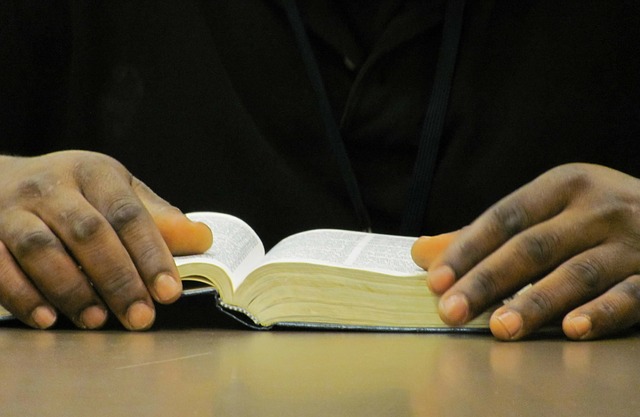
Sunday School Commentary and Preview 2-20-22

Greetings members and friends and welcome to another commentary and preview to this Sunday’s study of the Word. This Sunday’s study text is entitled “Bildad Misunderstands God’s Justice” and it is based on Job 8:1-10, 20-22.
When bad things happen to people, some people assume they did something to deserve or bring about what happened to them. This was a common belief in the ancient near east where the biblical account of Job takes place.
After Job’s demise, three of his neighbors and acquaintances the bible calls friends came to see what had happened to Job and talk to and comfort him. The bible said no one said anything for seven days because of the overwhelming amount of suffering and loss they witnessed that had befallen Job.
Job went first and declared he knew of nothing he had done that God would bring such a calamity upon him as this. But each of his three friends disagreed with his assessment and implied and insisted that he must be guilty of something.
Each friend in turn was more critical as each address Job. Bildad was the second to speak and he was harsher and more critical than the first but not quite as harsh as the last. The study text focuses on the first address of Bildad on his assessment of Job’s situation.
His first criticism was of Job claim of innocence and what appeared to him as Job questioning God’s justice. Bildad argument and belief was that God rewards the upright and punishes the sinner.
He, like many of his time and even today, believed earthly reward and punishment was based on human behavior. But this is a wrong assumption. He said that Job’s children were all killed because of their sin. Of course, he was wrong, though they may have sinned that is not why they were killed.
We must remember that everything that happened to Job in this instance was because God allow Satan to have his way with Job and attack him and everything he had including his children. This should be a warning to all of us not to ever be presumptuous in saying why things happen, especially attributing things to God. For none of us know the mind of God nor if or why God commands or allows this or that.
Next Bildad implied Job was not “pure and upright” because if he was then God would have heard his cry and would have done something to restore him. This was another misunderstanding and reading of God.
God does not operate on our time schedule. God did hear and restored all Job lost. But it is not always the case that the loss and suffering of the righteous shall be restored and relieved in this life.
The righteous must be prepared to loose everything in this world as Job was and still believe in and remain faithful to God. This is the core essence of the story of Job.
No matter how faithful, how pious, how holy, how righteous one may be, there is no escape of loss, no escape of suffering, no escape of pain and no escape of sorrow in this world. As the songwriter said, “If there hasn’t been any rain in your life, wait a while”.
Because of the scale and amount of these negative things it can be easy to lose sight of, trust in and belief in God. We must avoid the trap of trying to analyze every action and judging God. There are some things we will not comprehend, nor understand why these things must be and happen.
Where our understanding and comprehension ends, our faith must take over. Like Job, no matter what happens or what we must endure, we must believe that God will reward our faithfulness.
Well, be sure to look over the study again and come prepared to offer your comments, questions and perspective on the meaning of the study. If you can’t attend your own Sunday School class this Sunday, you can join us live and online at 9:00 am at www.fbmbc.org and clicking the online services link.
You can also join us live by dialing 508 924-2890. If you have any comments or questions, be sure to place them in the comment section or you can share them on Sunday. So, let’s all have a great lesson and discussion this Sunday and remember to fear God and keep His commandments.
Pastor Jordan

Sunday School Commentary and Preview 2-13-22

Greetings members and friends and welcome to another commentary and preview to this Sunday’s study of the Word. This Sunday’s study text is entitled “Ezra Seeks God’s Law” and it is based on Ezra 7:1-10, 23-26.
Ezra suddenly appears midway in the book by his name many years after the first group of exiles in Babylon return and had rebuilt the temple. The Persian kings who conquered the Babylonian empire who destroyed Jerusalem and carried the inhabitants away were inclined to allow the Jews to return to their homeland and with their aid and assistance to reestablish themselves there.
Ezra was still in Babylon when he received the authority and assistance he needed to lead a group of Jews back to Jerusalem. His mission was to reconstitute the house of the Lord in order to make it function like it was intended according to the Law of the Lord.
Ezra seems to have been chosen by the king to take on this task. Ezra was a scribe and Levite and very knowledgeable in the Law of the Lord. He had a heart to know, understand and practice the Law and to teach it to others.
The king wanted whatever is commanded by the God of heaven to be done diligently for His house in Jerusalem for he did not want God’s wrath to come on him or his heirs. The king and Ezra formed the perfect match to get this done and God was working in them both.
How they got together is not told. We are told that Ezra had the king’s full support and authority to take whatever he needed and whomever he needed to get the job done including the royal treasury.
Furthermore, no one could levy any sort of tax on anyone or anything including any of the priests, Levites, singers, doorkeepers, temple servants, or other servants connected to the house of the Lord. This tax exemption for houses of worship has continued to appear in many cultures since then and exist even today in the United States and in other nations around the world.
Anyone who did not keep the law of God and the law of the king regarding these matters, a strict judgment could be executed against him, whether death, banishment, confiscation of property, or imprisonment.
It is said that because of his skill and dedication to the Law, Ezra helped to set and establish the Hebrew scriptures as we know them today. The study text today reveals the origin of Ezra mission and his authority to do what he did. The rest of the book tells what he did after his arrival in Jerusalem.
Also, he was a contemporary of Nehemiah who also received similar royal help to rebuilt the wall around Jerusalem. Together, they and others, helped to reestablish Jerusalem after its destruction to the holy city of God. Today, our responsibility as Christians is to learn all we can about the Law of God and the teachings of Jesus Christ in order to do them and teach them to others just as Ezra did.
Well, be sure to look over the study again and come prepared to offer your comments, questions and perspective on the meaning of the study. If you can’t attend your own Sunday School class this Sunday, you can join us live and online at 9:00 am at www.fbmbc.org and clicking the online services link.
You can also join us live by dialing 508 924-2890. If you have any comments or questions, be sure to place them in the comment section or you can share them on Sunday. So, let’s all have a great lesson and discussion this Sunday and remember to fear God and keep His commandments.
Pastor Jordan
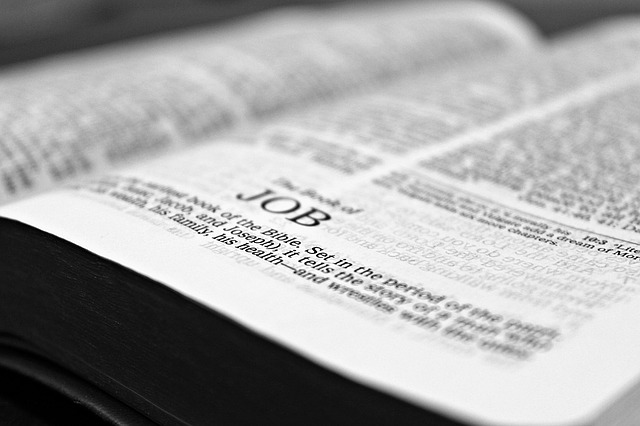
Sunday School Commentary and Preview 2-6-22

Greetings members and friends and welcome to another commentary and preview to this Sunday’s study of the Word. This Sunday’s study text is entitled “Nathan Condemns David” and it is based on 2 Samuel 12:1-14.
Today’s study recalls one of the most infamous incidents recorded in the bible. It is an incident involving the king of Israel and the man said to be after God’s own heart. David is the man God chose to be king after He rejected Saul for not obeying Him. He was a man who believed God and followed Him with his whole heart.
Despite how much David loved the Lord, He allowed his flesh, his own will and desire, to come before his obedience to the will of God. We may think it to be a minor offense to disobey God, but disobedience in all of its forms can have major consequences.
David had contempt for God’s law and may have thought that one indiscretion can’t be that bad when he decided to commit adultery. But what David failed to realize in that moment is just how holy God’s law’s are and they that must never be set aside for our own will.
To set aside or have contempt for God’s law is like being in possession of something that is extremely sterile and must never be soiled in any manner and placing in on the ground in order to lay hold of something we want.
We have treated it as something common, defiled it and failed to give it the respect it is due. And once we do it once, it becomes easier to do it again and again. David didn’t stop with adultery, but proceeded to murder as he continued to have contempt for God’s holy law to satisfy his flesh.
The study text focus is on what happened after David got what he wanted. God’s prophet confronted David with a story with illustrated contempt and selfishness. David was justly outraged toward the one who was guilty of these sins and pronounced death upon him.
Nathan informed him that he was the man guilty of these sins. David admitted his guilt. But unlike others who have disobeyed God like Saul, God did not withdraw His mercy from David.
None of us deserve God’s mercy for acting with contempt toward God and His laws. Yet God chooses to have mercy on some of us and others He doesn’t. Nevertheless, David suffered for his sins. The child he had with Bathsheba who did nothing but be born died as a consequence of David’s sin.
So even if we are forgiven and receive God’s mercy, there are consequences for sin. Because of what David did, it soiled God’s name and person before others which could cause them to have less respect for Him. The same is true with all who name Christ as Lord when other see us breaking His commandments. It causes them to have even less respect for our faith and God in addition to bring on the consequences of sin.
Like David, we may have contempt for God’s law and say to ourselves that this or that disobedience is not big deal in order to have what we want. And it is usually not until after we have received what we wanted that our sin catches up to us.
Finally, what was the difference between David and Saul? Both were kings, both were anointed, both were disobedient. Why did David receive mercy and Saul did not? This is a good question and I don’t know for sure.
But if I was to offer an explanation today, I would say that David, and those like him who receive God’s mercy, was truly repentant of what he did and realized the gravity of what he did and resolved within himself never to do it again. Read Psalm 51.
Never do what again? Never have contempt for God’s holiness by laying aside His holy law down in the dirt of disrespect and ordinary so we can grab hold of some forbidden or unclean person or thing we want despite what it may do to us, do to others and do to God’s holy name and reputation.
Well, be sure to look over the study again and come prepared to offer your comments, questions and perspective on the meaning of the study. If you can’t attend your own Sunday School class this Sunday, you can join us live and online at 9:00 am at www.fbmbc.org and clicking the online services link.
You can also join us live by dialing 508 924-2890. If you have any comments or questions, be sure to place them in the comment section or you can share them on Sunday. So, let’s all have a great lesson and discussion this Sunday and remember to fear God and keep His commandments.
Pastor Jordan

Sunday School Commentary and Preview 1-30-22

Greetings members and friends and welcome to another commentary and preview to this Sunday’s study of the Word. This Sunday’s study text is entitled “Justice and the Marginalized” and it is based on Deuteronomy 24:10-21.
For most of human history, people have lived on or near the margins. The margin is doing and achieving only what is absolutely necessary to survive. Anyone outside or below the margin is in real danger of dying from the lack of the bare and basic necessities of life. There are always those throughout history who have plenty and live well and comfortably above the margins.
But for the vast majority of people life is a struggle to keep and maintain a decent living inside and above the margin. Even today, the relatively recent rise in the global standard of living is uneven and tenuous.
God knew humanity’s condition and put in place a system and commands to respect and provide for the those living on or below the margins. The study text covers several aspects of relationships with those on the lowest economic and social position within society.
Collateral for any loan may not be secured by the lender going within and demanding something in a person’s home. The primary reason for this is because everything a person has in their home was probably essential for survival.
Therefore, God left it up to those who were requesting the loan to determine what they could afford to give as a pledge for a loan. And if the pledge was something essential for survival, like clothing, it would have to be returned by the end of the day. This may sound strange to us today, but people didn’t have changes of clothes but many wore the same thing every day.
A second command regarding people is that their labor must not be exploited and their wages withheld. People couldn’t afford to save much and couldn’t last long without their wages. We know this even today. But the situation was more pronounced then.
God is very displeased when people’s economic and social status is sinfully taken advantage of including people who are immigrants and strangers living within the society.
In addition to wages, justice and protection from seizing life essentials shall not be denied to marginalized and immigrant groups of people especially among the most vulnerable such as widows and orphans.
Those with fields and groves of fruit and food must not pick their fields and groves clean by going back over them to gather every single thing. But they must leave what was missed and overlooked for those living on the margins.
All these commands are derived from the major theme of loving and caring for our neighbors and treating them the way we would want to treated. God reminded them that they should do these things because they know what it is like to be a marginalized group of people when they were slaves in Egypt.
This same theme of charity is at the heart of Christianity today. God cares about the weakest and most vulnerable members of society and has given commandments designed to see that they are not forgotten or mistreated.
As much as is possible, we should try to influence policy decisions that support and undergird the least among us. Jesus said that in we did it or did it not unto the least of these we did it or did it not unto him.
This is why greed is not good and capitalism is antithetical to these teachings. By definition capitalism seeks to exploit a need and take advantage of a situations and circumstances in order to maximize personal gain and minimize cost including the wages of workers used to produce profits.
It is an economic system that works, but it encourages greed, selfishness and idolatry and discourages care and concern for the common good. It leaves the marginalized on their own and an afterthought at best to navigate systems which promote personal gain and interest and perpetuates marginalized living and struggling on the margins.
Well, be sure to look over the study again and come prepared to offer your comments, questions and perspective on the meaning of the study. If you can’t attend your own Sunday School class this Sunday, you can join us live and online at 9:00 am at www.fbmbc.org and clicking the online services link.
You can also join us live by dialing 508 924-2890. If you have any comments or questions, be sure to place them in the comment section or you can share them on Sunday. So, let’s all have a great lesson and discussion this Sunday and remember to fear God and keep His commandments.
Pastor Jordan
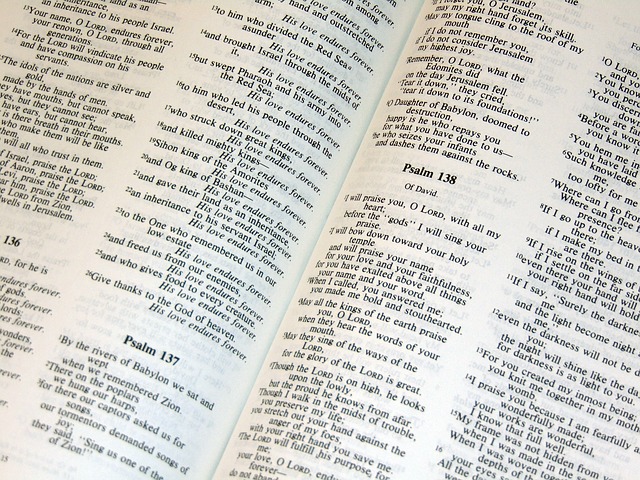
Sunday School Commentary and Preview 1- 23-22

Greetings members and friends and welcome to another commentary and preview to this Sunday’s study of the Word. This Sunday’s study text is entitled “Judges, Justice and Priest” and it is based on Deuteronomy 16:18-20, 17:8-13.
Christians believe the God of Abraham and Father of Jesus is the One and only true God. This God is also the Maker and Creator of everything which includes us. As such, it is His prerogative to establish the principles, rules and standards His creation will operate under.
All the physical and natural laws which govern our world and the universe are established by God. Moral and ethical laws through which people relate to other people and things are also His to establish.
One such law or principle is the ideal or notion of justice. The underpinning of justice, as with God’s laws of morals and ethics, is found in the command to treat everyone the way one wants to be treated or to love others as oneself. In keeping with this, we are commanded to seek what is fair and balanced when dealing with harm or injury to our relationships with others whether caused intentionally or unintentionally.
In our fallen world, disruptions in harmonious relationship are going to occur. To deal with those disruptions, God told the Israelites through Moses to appoint unto themselves judges. The lesson text does not give the criteria or method for appointing judges, but it is mention and seen in other places.
A judge will hold enormous power and authority to make decisions that impact on a society. Therefore, judges should be God-fearing, respected within their community, wise, trustworthy, experienced and understanding in order to be appointed to judge the relationships of others.
Beginning with these characteristics, judge’s decisions must be just. To be just, a decision must be fair to all involved. It should seek to repair, and to the extent it is possible, restore societal harmony to the place it was or to a better place.
In order to do this, the text says justice cannot be twisted. In other words, decision cannot be declared or rendered as fair and balanced when they are not. They violate the divine principle of treating everyone the way one wants to be treated. To prevent this from happening, judges must be impartial with those appearing before their court. They must not show respect of persons or accept gifts or bribes in making their decisions.
A just judiciary is essential to the survival of the society as expressed in v. 20 with the words “so you may live or continue to be” in the land. In the United States, the appointment of judges is the most important exercise in the nation which has turned into a partisan political endeavor that is leading to the disrespect of the decisions judges are called on to make.
When people have no confidence in the decisions of the courts and refuse to abide by them, that signals the beginning of anarchy and the breakdown of law and order. For a society to live, there must be confidence in and respect for the courts.
The latter verses of the study text emphasize the importance of making just decisions especially in matters where a judge is incapable of making the decision. Here Moses establishes a type of court of appeals rooted in the priesthood.
When the civil courts proved inadequate to deal with a case, an appeal to the spiritual was to take its place. The decisions made by the priest had the added sanction of Divine appointment because the priests were chosen or determined by Divine Law. Their judgement was final and could not be appealed.
It was similar to the United States Supreme Court from which there is no appeal of its’ decision. Everyone was to abide by it without question regardless of how they felt about it. Those who refused to abide by the judgement, were considered evil and had to be removed from society by way of death if necessary. So shall the nation survive or continue.
The United States is on the brink of chaos and anarchy because of how the members of the Supreme Court have been chosen recently. When controversial and unpopular decisions were handed down in the pass, the nation generally when along with the decision because the populace had confidence in the process and judges were confirmed on an overwhelmingly bipartisan basis.
Today, judicial appointments are held hostage and confirmed on an ideological and party line vote. This is eroding confidence in the backstop of law and order and justice in this nation. When the backstop no longer works, lawlessness and violence will take its place.
God’s people need to recognize this and help restore integrity to the most importance exercise and process in society of appointing those who repair, restore and enhance societal relationship. The law and its application must be fair and just to those who believe as well as those who don’t believe, to the God-fearing and the godless for harmony to prevail.
Well, be sure to look over the study again and come prepared to offer your comments, questions and perspective on the meaning of the study. If you can’t attend your own Sunday School class this Sunday, you can join us live and online at 9:00 am at www.fbmbc.org and clicking the online services link.
You can also join us live by dialing 508 924-2890. If you have any comments or questions, be sure to place them in the comment section or you can share them on Sunday. So, let’s all have a great lesson and discussion this Sunday and remember to fear God and keep His commandments.
Pastor Jordan

Sunday School Commentary and Preview 1-16-22

Greetings members and friends and welcome to another commentary and preview to this Sunday’s study of the Word. This Sunday’s study text is entitled “The Laws of Justice and Mercy” and it is based on Exodus 23:1-12.
Relationships. This is the main focus of what the bible teaches us about. It teaches us about how we should relate to God, how we should relate to others and even how we should relate to ourselves. This Sunday’s study has important principles and commands concerning these relationships.
The first commands and principles deal with truth. When I first read them, I thought within myself how far are those who have influence upon others, especially certain current lawmakers, media broadcasters and others, from these commands. Not only are we forbidden by God from spreading anything false, but neither are we to aid or assist in any way anyone to do this.
Suffice it to say there is widespread aiding and abetting lies and liars going on in society today made exceptionally easy, quick and instantaneous through the internet and other global communications methods. Once a lie to released, it can spread faster than a virus and can’t be recalled. All the damage it causes can not be undone.
God commands not to go along with a crowd when the crowd is wrong. Because more and more people say something is right, okay or acceptable doesn’t make it so. We are commanded not to allow popular opinion to shape and determine what is moral and just but the commands and teachings of God.
Neither are we to respect persons in respect to justice. People are guilty or innocent regardless of their race, economic status, nationality, sex or any other factor upon which a preference or favoritism could be shown.
Mind you that some are and would attempt to use this as a means to maintain a privileged status when this command or principle was ignored to advantage them and disadvantage others. To achieve a fair and equitable society acknowledge of pass wrongs should be made and remedies put in place to counteract the damage that was done to the extent it is possible.
God commands us to do good and help those who would do evil to us. For instance, it is not acceptable to take advantage of or be indifferent to someone’s situation even if they hate us, dislike us or are any way different from us. No person is to be denied fairness, justice and equity because of their underprivileged status.
We are commanded not to have any part of anything that is false or in condemning the innocent. This God says we will most definitely answer for. We are forbidden from accepting favors or bribes in exchange for any injustice or circumvention of truth.
We are commanded to treat strangers and others unlike ourselves with kindness remembering our forefathers were once strangers and many of them were mistreated. Here again, we are to treat others the way we want to be treated, not how we or those in our past may have been treated.
He ends this study text with a command to care for the poor and less fortunate and a respect for the seventh day of rest. A society owes it to God to take care of the poor. God takes care of us and we must take care of each other in providing a floor for everyone.
Another major problem with society is our greed and idolatry. More and more of us seldom or never take the seventh day off in our pursuit of money and pleasure to honor and thank God for all He does for us.
Again relationships. How we treat and respect one another, God and ourselves is what God is most concerned about. It forms the foundation of a holy and righteous kingdom and nation. Right now, we as a people and nation are so far for this. By continuing down this path of ignoring these commands and principles, a nation will surely collapse under its own immorality and disobedience to Divine commands.
Well, again be sure to look over the study again and come prepared to offer your comments, questions and perspective on the meaning of the study. If you can’t attend your own Sunday School class this Sunday, you can join us live and online at 9:00 am at www.fbmbc.org and clicking the online services link.
You can also join us live by dialing 508 924-2890. If you have any comments or questions, be sure to place them in the comment section or you can share them on Sunday. So, let’s all have a great lesson and discussion this Sunday and remember to fear God and keep His commandments.
Pastor Jordan
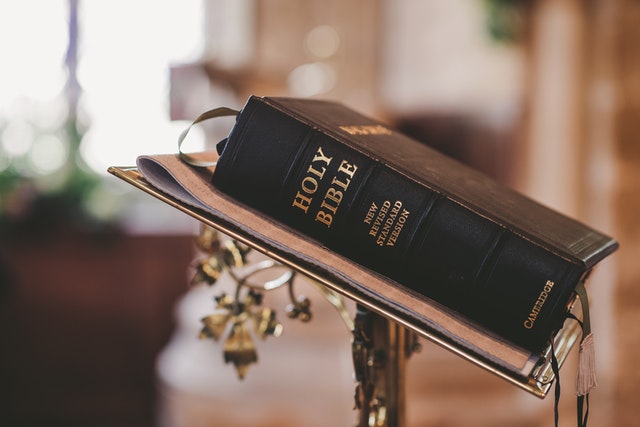
Sunday School Commentary and Preview 1- 9-22

Greetings members and friends and welcome to another commentary and preview to this Sunday’s study of the Word. This Sunday’s study text is entitled “Hagar And Ishmael Are Not Forgotten” and it is based on Genesis 21:8-21.
Not everyone who has heard of Abraham in the bible may not have heard of Ishmael. People may have heard of Isaac and Jacob, but not Ishmael. On the other hand, there are people who call themselves and are called Arabs who know of Ishmael, but may not know Isaac and Jacob.
This is because the two great religions of Christianity and Islam both trace their roots to Abraham. They diverge with the first two sons of Abraham. According to both religions, Abrahams first son was by his slave.
The bible said Abraham’s wife insisted that he have a child by Hagar, their slave or servant, in order for Sarah to have a family through this child. This practice was not uncommon. Both of Jacob’s wives, Rachael and Leah, did something similar with their slave women.
The bible said that Sarah gave Hagar to Abraham to be his wife or better still to be understood as a concubine. Once Hagar was pregnant with Abraham’s child, she began to feel and behave beyond her status as a slave which incurred the wrath of Sarah. She fled from Sarah but returned at the insistence of an angel to submit to Sarah’s authority and promises that God will take care of her son.
Nearly 14 years later, Sarah bore her own son and named him Isaac. Shortly after Isaac was weaned, Sarah saw something in the matter Ishmael interacted with Isaac and prompted her to insist that both Hagar and Ishmael be cast out of their family. She did not want Ishmael to share in the inheritance Abraham would leave to his offspring.
This request really disturbed Abraham and he didn’t want to do it. But God again intervened and told Abraham to do as his wife has requested because I will fulfill the promises I have made to you through Isaac. But because Ishmael is your son, God said he would take care of him and make a great nation from him.
So, Abraham did as his wife asked and forced Hagar and Ishmael to leave after giving them some water and provisions. Sometime after they were forced to leave, their water and provisions ran out. They were both at the point of death when an angel responded to their cries of help.
They were led to a well where they found the water they needed to survive. Again, a promise was made to take care of Ishmael. They remained in the wilderness where Ishmael became a hunter and archer and took a wife from the land of Egypt.
Hagar and Ishmael are a result of the unwillingness of Sarah and Abraham to wait on the promise of God. Abraham was 85 and Sarah was 75 and it looked to them that Sarah’s suggestion to have a son through Sarah’s slave woman was a reasonably way God would fulfill His promise. After the deed was done, Sarah realized they had been presumptuous and should not have done what they did. But then it was too late.
This is a familiar story that plays out in most of our lives. We try to help God out instead of being patient and waiting on Him to act. Because of our impatience, we have and will make decisions we will later come to regret. The song writer said “You can’t hurry God, you have to trust Him and give Him time, no matter our long it takes”.
Even with this indiscretion, Abraham is still called the father of faith. It was not his idea not to wait, but he shares in the blame because he yielded to the voice of his wife. Yet he believed that God could fulfill His promise in Ishmael and is probably why he yielded to Sarah’s suggestion.
Abraham loved Ishmael and asked God couldn’t Ishmael be the fulfillment of His promise. But God told him not to worry about Ishmael because He would take care of him. But His promise would be fulfilled in a son yet unborn and that son would be Isaac at the age of 100 and Sarah age 90.
One final note. Upon Abraham’s death, both of his sons Ishmael and Isaac came together to bury him.
Well, again be sure to look over the study again and come prepared to offer your comments, questions and perspective on the meaning of the study. If you can’t attend your own Sunday School class this Sunday, you can join us live and online at 9:00 am at www.fbmbc.org and clicking the online services link.
You can also join us live by dialing 508 924-2890. If you have any comments or questions, be sure to place them in the comment section or you can share them on Sunday. So, let’s all have a great lesson and discussion this Sunday and remember to fear God and keep His commandments.
Pastor Jordan
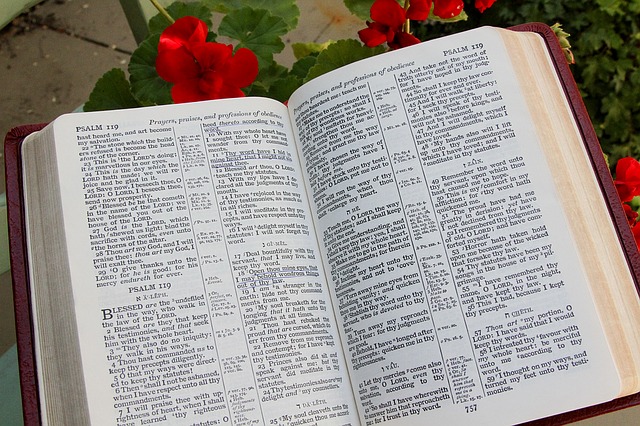
Sunday School Commentary and Preview 1- 2-22

Greetings members and friends and welcome to another commentary and preview to this Sunday’s study of the Word. This Sunday’s study text is entitled “Justice, Vengeance and Mercy” and it is based on Genesis 4:1-13.
The bible tells us that Adam and Eve had two sons named Cain and Abel. It also tells us that the older brother, Cain, killed the younger brother. The bible does not tell us the reason Cain killed his brother. We are given a few details about their lives from which we can infer a motive for Cain’s actions.
Cain was a tiller of the ground and Abel a keeper of sheep. Sheep are livestock and are generally considered more valuable than food which is raised from the ground. While both can be consumed by humans to sustain life, sheep and animals represent a higher form of life and their flesh is likewise more valuable because it is more expensive to replace that any field crop.
Both Cain and Abel brought an offering unto the Lord. Why either of them felt the need to bring an offering we are not told. The Lord respected or appreciated the offering Abel brought but not the offering of Cain.
Abel’s offering consisted of the best firstborn sheep of his flock. Instead of keeping it for himself, he offered it to the Lord and the Lord responded positively toward his unselfish act as a way of honoring Him.
Cain brought unto the Lord the less valuable nothing special about it fruit of the field. His offering didn’t represent the selfless sacrifice of what was worthy of the honor the Lord is entitled to. It may be inferred that God didn’t give Cain’s offering respect because it was not worthy of His respect.
It must be noted however that the intrinsic value of a sacrifice alone does not make it worthy or acceptable. The means of the giver (meaning what they are able to bring) and the intent and disposition of the heart also matter.
Sometime after Cain’s offering was rejected, he was found angry and his face and appearance which the text refers to as countenance began to reflect his angry. The Lord asks Cain the reason for His anger. Cain didn’t reply or give his own reason for being angry.
The Lord suggest in a statement to Cain that the root of his anger was in something he was not doing well. What was it that Cain was not doing well that also caused him to offer to the Lord an unworthy offering or sacrifice? We are not told. But we are told that whatever it was, sin was lying at the door or has a role in it.
Here God warns Cain to get control over sin or it will take control of him. It was some sinful thing or thought that was causing Cain not to do well and was a cause for his anger. These things led to Cain killing his brother for no just reason or cause.
Cain did not get control over what he was not doing well and this led to him being willing and able to kill his brother over something that should not have arisen to or resulted in death. We see this same thing playing out everyday in 2021, and now 2022, and all the years since.
There is something in humanity that we are not doing well that if left uncontrolled drives us be cruel to others. It left Cain unfeeling and uncaring about his brother saying he was not his brother’s keeper.
And so it is with man today and everyday since. We can be uncaring and unfeeling toward others, cruel, hurtful and indifferent about their pain or suffering. No wonder the second command is to love others as we love ourselves.
God punished Cain for his evil deed toward his brother. God will not allow evil to go unpunished. From Abel to the last person standing, everyone will answer for the life they have chosen to lead and the deeds we have done and are doing. The good news is that God offers forgiveness, but only if we repent by beginning to do well and seek to do His will.
Well, again be sure to look over the study again and come prepared to offer your comments, questions and perspective on the meaning of the study. If you can’t attend your own Sunday School class this Sunday, you can join us live and online at 9:00 am at www.fbmbc.org and clicking the online services link.
You can also join us live by dialing 508 924-2890. If you have any comments or questions, be sure to place them in the comment section or you can share them on Sunday. So, let’s all have a great lesson and discussion this Sunday and remember to fear God and keep His commandments.
Pastor Jordan

Sunday School Commentary and Preview 12-26-21

Greetings members and friends and welcome to another commentary and preview to this Sunday’s study of the Word. This Sunday’s study text is entitled “Justice For God’s Beloved People” and it is based on Nahum 1:1-15.
Nahum is one of the minor Old Testament prophets for which little is known with a burden. The word “burden” is generally used to refer to a heavy weighing threatening prophecy. The bible relates him to Elkosh. While there are several speculations as to where this or to whom Elkosh refers to including somewhere in Galilee or Judah, no one really knows where or who this is.
His burden was directed toward Nineveh, a city Jonah, also an Old Testament prophet had gone to and prophesied against some time earlier at God’s direction, which became the capital city of the Assyrian Empire.
Some consider the Assyrian Empire the greatest of the Mesopotamian empires because of how far it reached geographically and because of significant developments in civil communication, planning and governance along with developments in the use of iron and other military strategies which gave them a superior advantage over others they fought.
But sometimes kings, kingdoms and rulers begin to believe and behave like they don’t have to respect God. This is what happened when the king of Assyria blasphemed the Lord at the siege of Jerusalem (2 Kgs 19:9-19). There the Lord took out over 180 thousand in one night. The remnant of that army left and never returned to Jerusalem.
The burden that Nahum has against Nineveh is in part for this and their arrogance. Nahum ascribes jealousy, anger and wrath to God. By being jealous, God is protective of His name and honor. His wrath and anger is like that of a father who is protective of His children and outraged and incensed by those who harm them or have ill intentions toward them. He will not allow those who harm them or who blaspheme His name to go unpunished.
God is not petty or trifling like someone who is easily offended and wants to repay someone for something they did. On the contrary, God knows mankind and is slow to take offense for the things he does. But God has a responsibility to remind man of his place and who He is tangling with. So Nahum describes and reminds us of the awesomeness of God’s power.
While the main part of his burden is directed toward Nineveh, it is a message to the entire world to remember and acknowledge who God is and that none can stand against Him and all must answer to Him.
Then Nahum begins to lift up those who trust God and declares in a sense that God has their back and will not forsake them. Even if it means avenging them after they have suffered, God will reward those who trust Him and judge those who oppose Him and harm those who trust Him.
The once great and powerful city of Nineveh was so thoroughly overthrown and judged, that it is difficult to find where it once stood. It will never bother God’s people or anyone else again. The prophet said Nineveh went too far when it boasted about its conquest and insulted the Lord’s ability to save Jerusalem.
God delivers His own into the hands of spoilers so that He may teach and discipline them. But the spoilers need to recognize that it is God who gives them permission to do what they are doing and not to go overboard or forget that lest they end up being spoiled or judged for going too far. For when God sees His people have had enough, He stops what He allowed to happen to them and begins the process of restoration.
In conclusion we must always remember that God is on the throne and will judge the deeds of all people. No one will get away with anything. Though the righteous suffer, and not always because of something they have done though sometimes it is for that reason., our suffering is not in vain. God will make everything right is the belief and faith all the true children of God in all and every age have.
Well, again be sure to look over the study again and come prepared to offer your comments, questions and perspective on the meaning of the study. If you can’t attend your own Sunday School class this Sunday, you can join us live and online at 9:00 am at www.fbmbc.org and clicking the online services link.
You can also join us live by dialing 508 924-2890. If you have any comments or questions, be sure to place them in the comment section or you can share them on Sunday. So, let’s all have a great lesson and discussion this Sunday and remember to fear God and keep His commandments.
Pastor Jordan

